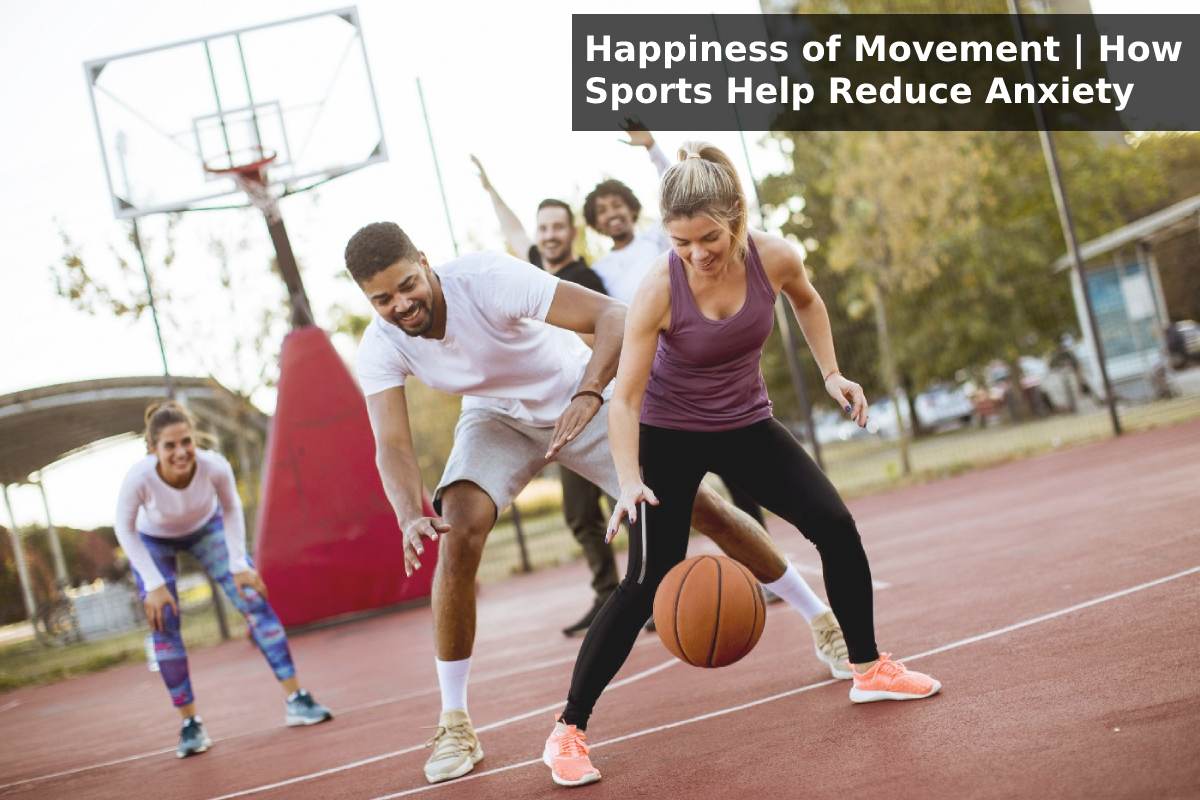Anxiety may be related to some upcoming event in your life, or you may have been diagnosed with a chronic anxiety disorder. Often anxiety accumulates, turning into a restless, heavy and chest-compressing lump, interfering with a normal life.
In any case, anxiety is exhausting, interferes with thinking and making even mundane decisions. Chronic anxiety increases the risk of depression, and can contribute to diabetes and cardiovascular disease. In some cases, it can be caused not by some severe life changes but by some small difficulties. For example, while testing your luck you could try this out, but lost and got anxious because of the time you spent on that activity.
The underlying causes of anxiety can only be worked through psychotherapy, with comprehensive measures and with lifestyle changes.
The results of many studies have proven that moderate and regular physical activity reduces the negative effects of stress, helping to improve mood and mental well-being in general, and increasing emotional resilience.
For example, in the late 1960s, psychiatrist Frederick Beckeland empirically proved that exercise improves sleep quality. Motor deprivation provokes psychological problems, sleep disorders, increasing irritability and anxiety.
Intrinsic motivation plays a key role in the relationship with sports. If it is strong and the inner motivation comes from the person’s desire, not forced by external stimuli such as rewards, expectations of others, punishment, etc., then intense physical activity will greatly improve the quality of life, reduce anxiety and redirect your attention to the “here and now” moment.
Activity should be enjoyable, and external factors take a back seat.
Physical activity will help improve circulation, speed up metabolism and reduce inflammation, reduce muscle and psychological tension and anxiety, and relieve headaches.
Regular exercise helps keep dopamine levels in check and reduces cravings for bad habits.
Watch the intensity of the workout – the more intense the exercise, the more likely it is to feel the effects of the release of endorphins. For example, you can experience “runner’s euphoria” only if your run is moderately challenging and your workout is sufficiently intense.
However, sport is not a panacea for anxiety and stress, although it promotes the production of serotonin, dopamine and endorphins, but in some cases sport can become a source of stress, not a salvation.
Neurotransmitters play an important role in regulating mood, and their production is closely linked to physical activity. For example, when you are completely exhausted physically and mentally, you exercise too hard or your workouts are too intense, this leads to a large release of cortisol, adrenaline and noradrenaline into the bloodstream. When stress hormones are prevalent, the nervous system, working at its limit, does not have time to recover, which leads to exhaustion.
Physical Activity Changes Brain Chemistry
Movement is freedom. Sports are an antidepressant. You can fall in love with sports and exercise, even if you didn’t like it before. Sport is capable of causing a gradual addiction, but it takes time, preferably regularly and at least a month, and you need to find a sport activity that suits you. The body and brain need to adapt.
In order not to increase serious stress, if you find it difficult to start high-intensity interval training right away, think of other ways to increase serotonin levels and reduce stress. These can be walking outdoors, yoga, dancing, stretching, meditation, laughing, or socializing.
Sports activities can also be different: rowing, yachting, horseback riding, swimming, ballet, Pilates, running, skiing, skating, capoeira, Japanese archery, power walking and more.
Choose what works for you. And if you’ve been running or actively boxing for a long time, but have only come to a burnout, maybe you should change your activity and practice yoga, thereby leveling out your emotions.

